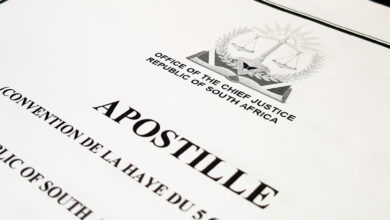Your Ally in the Justice System: The Supportive Role of Bail Bond Agents

The justice system can be a maze of policies, procedures, and legal jargon that often overwhelm individuals who find themselves at its mercy. For those awaiting trial, the prospect of detention until court proceedings—a potentially lengthy process—poses a serious personal and economic challenge. Here lies the key role of bail bond agents, individuals who offer a bridge over the gap between arrest and trial. They not only facilitate temporary freedom for the accused but also ensure the court’s interests in their appearance at trial. This service is fundamental in a system that presumes innocence until proven guilty, as it allows defendants to manage their affairs, support their families, and prepare their defense without the constraints of incarceration.
However, the bail bonds industry is often overlooked or misunderstood by the public and is often veiled in controversy. This article seeks to move beyond common misconceptions and provide insight into the positive impact that a bail bond agent has within the justice system. We’ll argue that, rather than being viewed as a mere financial transaction, the relationship between bail bond agents and defendants is a supportive lifeline during an important time. By providing not just a monetary service but also guidance through a complicated legal environment, bail bond agents can be seen as invaluable allies advocating for balance within an imperfect system.
What Bail Bond Agents Do

Bail bond agents occupy a vital role in the judicial system, often bridging the gap between the accused and their constitutional right to freedom prior to trial. Primarily, they issue bail bonds that act as a guarantee to the court that the defendant will attend all required legal proceedings. They manage the risk that comes with this assurance by evaluating the defendant’s ties to the community, financial stability, and the nature of the charges.
Beyond financial underwriting, these agents provide defendants with a clear understanding of legal obligations and court expectations. Their extensive knowledge of the judicial process allows them to assist clients in adhering to bail conditions while maintaining regular contact to ensure compliance. Bail bond agents not only facilitate a more equitable justice system by enabling those without immediate funds to secure their release but also play a guiding role that supports defendants through the challenges and emotional toll of pending litigation.
The Benefits of Working with Bail Bond Agents
Defendants who partner with bail bond agents can reap a variety of benefits beyond the obvious fiscal relief of not having to cover the full bail amount. These professionals offer a financial lifeline by charging only a percentage of the total bail as a fee, making pre-trial release attainable for many who otherwise wouldn’t afford it. Beyond the monetary advantages, bail bond agents are seasoned professionals of the judicial process, and they can provide defendants with a clear roadmap of what’s expected from them legally, alleviating the stress and uncertainty that often accompany legal proceedings. The agents often become a source of moral support, standing by the defendant in a moment of crisis.
Further, they foster cooperation with the court system by reminding clients of court dates and guiding them through the conditions of their release, which can prevent any inadvertent breaches of bail terms. This suite of services does not just extract individuals from jail temporarily but ensures they do so with a greater understanding of the legal procedures they must traverse, which can be just as important to their case as the financial aid.
Legal and Ethical Considerations for Bail Bond Agents

Sorting through the detailed framework of laws and ethics surrounding the bail bond industry is imperative for both bail bond agents and their clients. Bail bond agents are legally obligated to follow strict regulations designed to protect the rights of the defendant and the interests of the judicial system. They ensure compliance with state licensing requirements, which include background checks and an in-depth understanding of bail law. Ethically, bail bond agents must conduct their operations with integrity, maintaining confidentiality and avoiding any form of discrimination while providing their services.
What’s more, they are proscribed from soliciting business in a manner that is misleading or coercive. These legal and ethical standards uphold the agents’ professional responsibility to act in the best interest of their clients by fostering trust and ensuring that the bail process remains fair and just. Defendants who are well-informed about these considerations are better equipped to select a reputable bail bond agent to support them through their legal proceedings.
Building Trust and Relationships with Bail Bond Agents
Forging a strong relationship with a bail bond agent, based on mutual trust and clear communication, is integral for defendants who are working towards a successful resolution of their legal matters. When an individual is arrested, the fear and uncertainty experienced can be overwhelming, making the assistance of a bail bond agent, who acts not only as a financial but also as an advisory ally, key. These agents can instill confidence in defendants, guiding them through the bail process with transparency and support.
By keeping open lines of communication, defendants are kept informed of their responsibilities and can avoid potential missteps in their legal path. Trust builds from consistent, reliable interactions and a bail bond agent’s commitment to the defendant’s case, ultimately fostering a partnership that is paramount to overcoming the challenges of the legal system.
The Future of Bail Bond Agents in the Justice System

In the changing terrain of the justice system, bail bond agents face a future that requires adaptability and ongoing change in their role. As legislative reforms and shifting public opinions continue to mold the legal framework around pretrial release, these professionals must stay abreast of new laws and alternatives to cash bail that could greatly alter their traditional functions. In some jurisdictions, there’s a push toward eliminating cash bail altogether, which could completely redefine or even phase out the need for bail bond services.
To remain vital, bail bond agents may need to expand their services, perhaps by offering more all-encompassing pretrial support services, engaging in community education regarding legal rights, or collaborating with court systems to facilitate risk assessment and management. Proactively looking toward incorporating technology and data analytics can also play a part in creating more efficient and fair pretrial practices.
Bail bond agents play an indispensable role in lending support to defendants within the legal system. Throughout, we have highlighted their key function in issuing bail bonds, managing risk, and offering guidance through the legal terrain. Their services go beyond mere financial assistance, encompassing emotional support, practical advice, and fostering a trusting relationship necessary for maneuvering through the challenges of the legal process effectively. As with any changing industry, bail bond agents must adapt to legal reforms and shifting perspectives on pretrial release practices.




